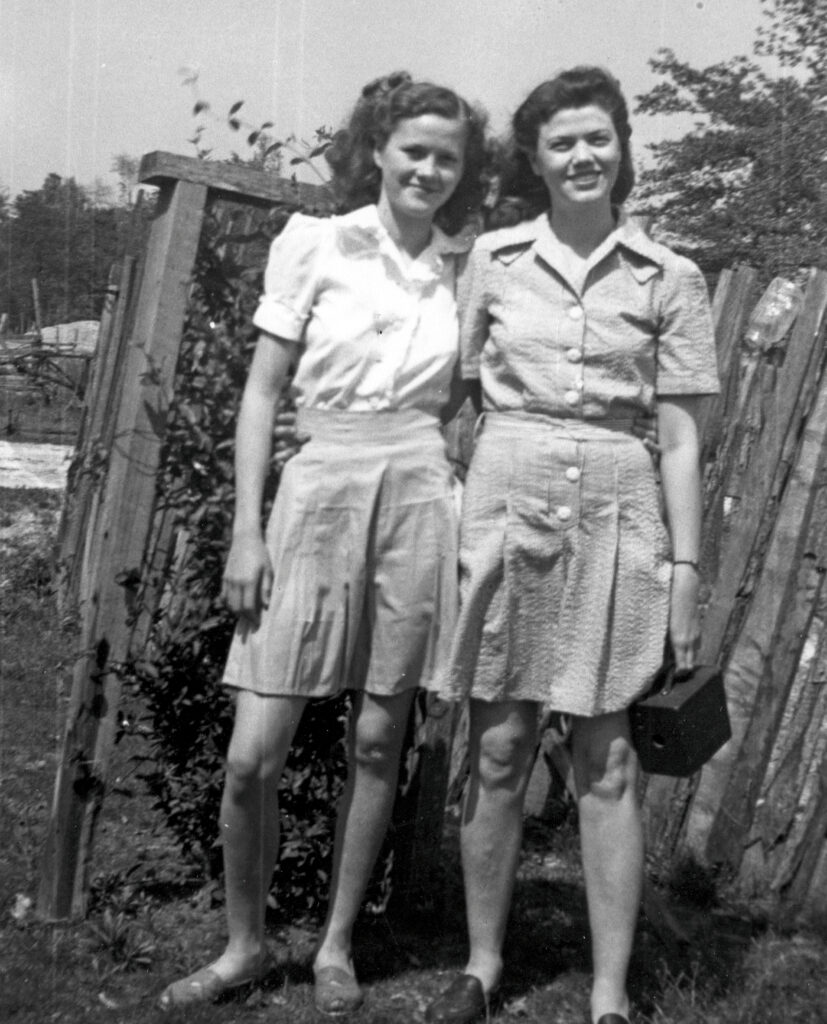 The photo above (my mom and Aunt Marie) was probably taken sometime in the mid-1940s on the family farm near Broseley, Missouri. I’ve seen this photo countless times but not sure I’ve noticed the camera in my aunt’s hand. A little history from ChatGPT:
The photo above (my mom and Aunt Marie) was probably taken sometime in the mid-1940s on the family farm near Broseley, Missouri. I’ve seen this photo countless times but not sure I’ve noticed the camera in my aunt’s hand. A little history from ChatGPT:
The “Brownie” box camera, introduced by Kodak in 1900, was a revolutionary development in photography. Designed to be affordable and easy to use, it brought photography to the masses and helped popularize snapshot culture.
Key Points in Brownie History:
- 1900: The original Kodak Brownie was released for just $1, with film costing 15 cents per roll. It featured a simple cardboard box design with a fixed-focus lens and a single shutter speed.
- Early Success: The Brownie was heavily marketed to children and amateur photographers, making it one of the first truly accessible cameras.
- Evolution: Over the years, the Brownie evolved with different models, materials (from cardboard to metal and plastic), and features like built-in flash units.
- Cultural Impact: The Brownie was instrumental in capturing everyday life, historical events, and even wartime photography. It remained popular for much of the 20th century.
- End of an Era: Though production slowed in the late 20th century, the Brownie’s legacy continues as one of the most influential consumer cameras ever made.
